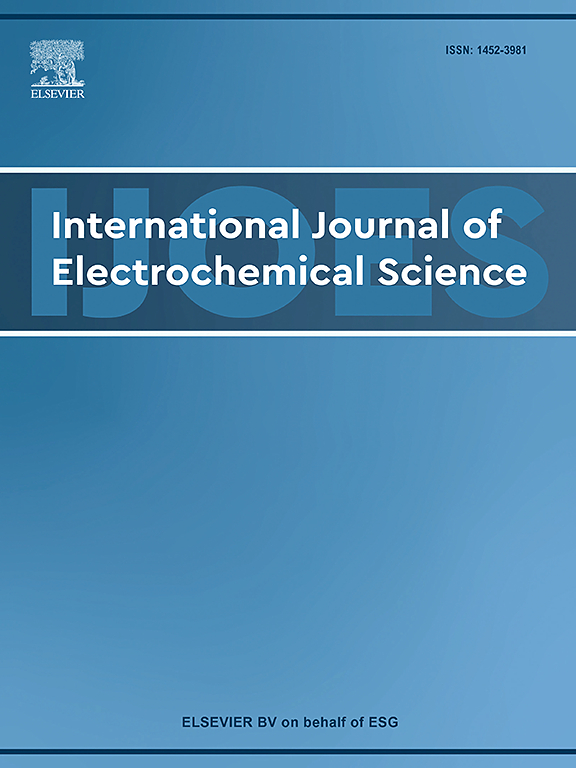Research on state of charge estimation of lithium battery based on adaptive forgetting factor recursive least squares and multi-innovation adaptive unscented Kalman filter
IF 2.4
4区 化学
Q4 ELECTROCHEMISTRY
International Journal of Electrochemical Science
Pub Date : 2025-06-17
DOI:10.1016/j.ijoes.2025.101103
引用次数: 0
Abstract
State of charge (SOC) estimation is critical to battery management and mileage prediction of electric vehicles. Model-based SOC estimation supply an effective solution to computation efficiency, but its accuracy highly dependent on model parameters. Three key technical contributions are made. First, the traditional model parameter identification method based on recursive least squares with forgetting factor (FFRLS) often sets its forgetting factor to be a constant during the iterative process, while disregarding estimated voltage accuracy. In this study, an adaptive forgetting factor recursive least squares method (AFFRLS) is proposed based on the adaptive theory. The core idea is that the forgetting factor is adaptively adjusted according to preset adaptive formula of the voltage error. In this way, both robustness and identification accuracy of the algorithm can be improved effectively. Second, a multi-innovation adaptive unscented Kalman filter (MIAUKF) is proposed to utilize historical voltage data and weaken the impact of voltage cumulative error on SOC accuracy. Finally, the performance of the proposed approach is evaluated by comparison simulations considering three different temperature scenarios based on two standard driving cycles. The results show that the proposed approach can obtain higher accuracy in SOC estimation with maximum relative error below 2 %.
基于自适应遗忘因子递归最小二乘法和多创新自适应无气味卡尔曼滤波的锂电池充电状态估计研究
荷电状态(SOC)估算是电动汽车电池管理和行驶里程预测的关键。基于模型的SOC估计为提高计算效率提供了有效的解决方案,但其精度高度依赖于模型参数。提出了三个关键的技术贡献。首先,传统的基于带遗忘因子递推最小二乘(FFRLS)的模型参数辨识方法在迭代过程中往往将遗忘因子设为常数,而忽略了估计电压的精度。本研究基于自适应理论,提出了一种自适应遗忘因子递归最小二乘法。其核心思想是根据预设的电压误差自适应公式对遗忘因子进行自适应调整。这样可以有效地提高算法的鲁棒性和识别精度。其次,提出了一种多创新自适应无气味卡尔曼滤波器(MIAUKF),利用历史电压数据,减弱电压累积误差对SOC精度的影响。最后,通过两种标准工况下三种不同温度场景的对比仿真,对所提方法的性能进行了评价。结果表明,该方法可以获得较高的SOC估计精度,最大相对误差在2 %以下。
本文章由计算机程序翻译,如有差异,请以英文原文为准。
求助全文
约1分钟内获得全文
求助全文
来源期刊
CiteScore
3.00
自引率
20.00%
发文量
714
审稿时长
2.6 months
期刊介绍:
International Journal of Electrochemical Science is a peer-reviewed, open access journal that publishes original research articles, short communications as well as review articles in all areas of electrochemistry: Scope - Theoretical and Computational Electrochemistry - Processes on Electrodes - Electroanalytical Chemistry and Sensor Science - Corrosion - Electrochemical Energy Conversion and Storage - Electrochemical Engineering - Coatings - Electrochemical Synthesis - Bioelectrochemistry - Molecular Electrochemistry

 求助内容:
求助内容: 应助结果提醒方式:
应助结果提醒方式:


